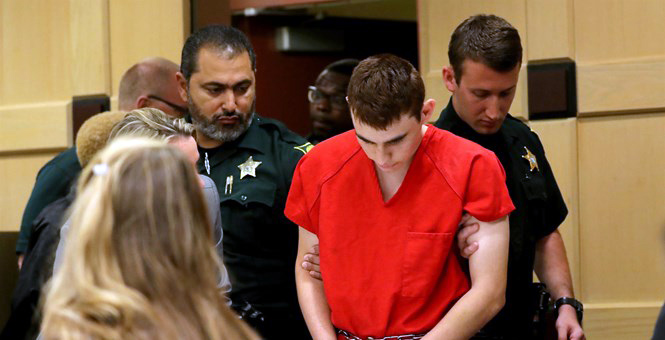Penna Dexter
After the horrific school shooting in Parkland, Florida, a meeting of surviving students was convened at the White House. Fifteen-year-old Justin Gruber reminded the president he wasn’t even alive 19 years ago when the Columbine High School shooting took place. The Wall Street Journal’s Peggy Noonan laments, “We’re in the second generation of public school terror.”
Yet federal school discipline guidelines, complete with monetary incentives for districts, show we’ve learned nothing from these horrible massacres. The guidelines attempt to end the school-to-prison pipeline by advancing a misguided philosophy that makes arresting teens taboo.
Since the shooting, reports have surfaced of 45 credible calls from citizens validating the impending danger shooter Nikolas Cruz posed. He was never arrested for his destructive activities, assaults on students, or threats to kill them. He was never referred to law enforcement or expelled, just moved from school to school.
The root of this goes deeper than incompetence on the part of the sheriff’s department.
Beginning in 2013, Broward County schools were actually discouraged from reporting dangerous students. That year the district launched PROMISE: Preventing Recidivism through Opportunities, Mentoring, Interventions, Support, and Education. PROMISE’s stated rationale is that “arrests and referrals to the criminal justice system may decrease a student’s chance of graduation, entering higher education, joining the military, and getting a job.” Since implementing the program, the district has seen a 66 percent drop in student arrests.
Broward County Sheriff Union president Jeff Bell said that under PROMISE, “we took all discretion away from the law enforcement officers to effect an arrest if we choose to.”
In 2014, the Obama administration issued its guidelines stating that districts are expected to post lower numbers on disciplinary problems, especially involving minority students.
According to this thinking, it’s not the behavior, but the arrest that leads to a bad future. Rather than discipline bad actors, schools mainstream them and cross their fingers that no tragedies ensue. Can we now agree, that doesn’t work?
 Listen Online
Listen Online Watch Online
Watch Online Find a Station in Your Area
Find a Station in Your Area









 Listen Now
Listen Now Watch Online
Watch Online
